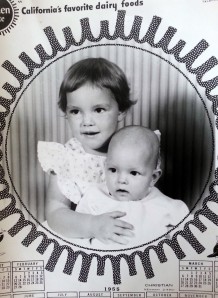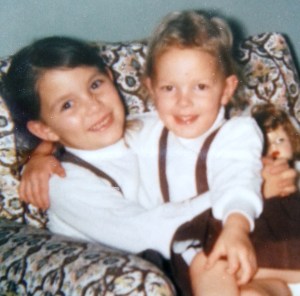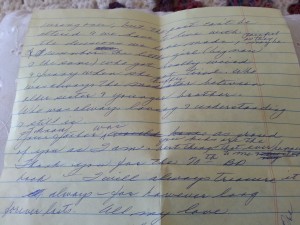Five years ago this month, in September 2013, I took my mother on her last outing. It was nothing extraordinary. We went to a doctor appointment, ran a few errands, and ate lunch at her favorite Mexican restaurant. Perhaps if we had known it was the last time we would be out together, we would have done something more purposeful, more memorable. Nevertheless, it was. That day, out of the blue, she told me that soon she would be leaving. Despite the fact that she was elderly, in poor health and wheelchair-bound, she remarked matter-of-factly that she would walk out the front door of our shared home and head down the sidewalk, carrying everything she needed in a small bag. A few months later she did leave. Just not on foot. She left on the wings of a dream and, in her memory, I am republishing the blog I wrote about her departure. Herewith is “Quiet Sleep and a Sweet Dream.”
Throughout her adult life, Mom experienced a recurring dream that was poignantly revealing. In the dream she roamed the halls of a school, unable to find her locker or her classroom. She was always lost, always searching, never finding. One hardly needs to consult a dream interpreter to understand the obvious meaning behind her unresolved quest. To think that she was perpetually adrift, unable to find her heart’s desire, was reminiscent of an ancient Greek tragedy.
Toward the end of her life, Mom also suffered from vivid nightmares. Many times I would hear her during the night or during an afternoon nap fighting against someone or something that posed a threat. She could rarely recount the experiences when I woke her, but judging by the flailing and yelling, the danger must have seemed very real. Sometimes she was so enmeshed in these dreams that it was difficult to break the spell. When gently touching her shoulder or softly calling out “Mom” didn’t work, I resorted to shouting her name, “Joy!”
One day just before she was admitted to the home hospice program, she was able to recall a particularly powerful vision. It began harmlessly but ended in disturbing cries that drew me to her bedside. Her story is still clear in my mind.
I was with a bunch of other people by the water. I’m not sure whether it was the ocean or a lake, but there was a pier. I’m pretty sure the people around me were my brothers and sisters. Sam (her late husband, my father) was in the water and he wanted me to get in. He kept laughing and trying to coax me, but I didn’t want to go. Finally, he grabbed me and pulled me in. Everyone was laughing, but I was really mad.
As with her recurring dream, this one did not require hours of thoughtful analysis. She simply was not ready for the end of this life … or on the flip side … the beginning of a new one. The hospice social worker she shared the story with concurred without hesitation. I was quietly concerned because I knew Mom did not have much time left to prepare. The ethereal boat was going to leave the pier with her aboard regardless of whether she wanted to go. I shuddered to think that she might die flailing and shouting – figuratively if not literally – as though she were in the middle of another bad dream.
The day inevitably came, of course, when she traded her hospital bed for a seat on that ghostly vessel bound for the Other Side. By that time, though, I was no longer worried that she wasn’t ready. Long after she stopped talking to us, my sister and I heard her pose two important questions to no one that we could see. I was alone with Mom for the first question. My sister was alone with her for the second.
Where are we? Where are we going?
Although she displayed some typical signs of near-death anxiety in the days leading up to her departure, Mom was entirely calm and peaceful when she asked these two questions. Her eyes were closed to the mortal world. There was no trepidation in her voice whatsoever.
I can’t think of anything she could have said in her last hours that would have given me more comfort. The answers would be interesting, but the questions are solace enough. Evidently, she went somewhere with someone.
 The idea that our loved ones depart on a journey of mystical proportions is not without basis. Religious beliefs aside, it is a fact that the dying use travel as a way of expressing their impending departure without even realizing it. In their 1992 book Final Gifts, hospice nurses Maggie Callanan and Patricia Kelley documented multiple examples of patients who exhibited near-death awareness in this way. Mom could have been one of their case studies. Out of the blue, about three months before she died, she told me that one day I would come home from work and she would be gone – out the front door, walking and carrying everything she needed in a small bag. I thought she was joking as she so often did, but her voice was somehow different. Faraway. When I questioned her scenario, she was indignant. I let it go, and we didn’t talk about it again.
The idea that our loved ones depart on a journey of mystical proportions is not without basis. Religious beliefs aside, it is a fact that the dying use travel as a way of expressing their impending departure without even realizing it. In their 1992 book Final Gifts, hospice nurses Maggie Callanan and Patricia Kelley documented multiple examples of patients who exhibited near-death awareness in this way. Mom could have been one of their case studies. Out of the blue, about three months before she died, she told me that one day I would come home from work and she would be gone – out the front door, walking and carrying everything she needed in a small bag. I thought she was joking as she so often did, but her voice was somehow different. Faraway. When I questioned her scenario, she was indignant. I let it go, and we didn’t talk about it again.
Today, with about 17 months of bereavement under my belt, I still miss my mother terribly. However, I don’t worry about where she is. I don’t picture her splashing around with my father in a lake or the sea near a pier, nor do I imagine her walking down the sidewalk of our neighborhood with a hobo sack slung over her shoulder. I don’t think of her futilely roaming the halls of a school because I think that, in the end, she finally located the elusive door of her locker or classroom and found paradise inside. No, I have embraced another vision – one that she shared with me on a sunny morning after she awoke from a quiet sleep accompanied by a sweet dream.
I was riding a motorcycle down a winding road with tall trees on both sides. It was getting dark and all I could see clearly was the headlight of the motorcycle on the road as I went around the curves. I don’t know where I was going, but I could feel the wind in my face and I felt free.
 That is how I like to think of Mom – on an endless sojourn with no particular destination. I can imagine her long, dark hair blowing in the wind and a beautiful smile on her youthful face. She leans right into one curve, straightens out her bike, and leans left into the next turn. She is free.
That is how I like to think of Mom – on an endless sojourn with no particular destination. I can imagine her long, dark hair blowing in the wind and a beautiful smile on her youthful face. She leans right into one curve, straightens out her bike, and leans left into the next turn. She is free.
And maybe freedom is the real point after all. Not where you are going or how you get there.
When our family gathered to scatter Mom’s ashes at her beloved Oregon Coast, we took some time to play and sing the songs she had requested – Mr. Tambourine Man by Bob Dylan, Tender Years by John Cafferty, Around and Around by John Denver, Always by Irving Berlin. I read a little poem she wrote when she was a child about wanting to be a cowboy. We wrapped the tribute up with a piece by the late British poet laureate John Masefield; a poem Mom had loved since she was old enough to read and appreciate classic prose. I could never deliver it in the resounding, dramatic way she always did, but it was the perfect farewell nevertheless.
Sea Fever
I must go down to the seas again, to the lonely sea and the sky, and all I ask is a tall ship and a star to steer her by, and the wheel’s kick and the wind’s song and the white sail’s shaking, and a grey mist on the sea’s face, and a grey dawn breaking. I must go down to the seas again, for the call of the running tide is a wild call and a clear call that may not be denied. And all I ask is a windy day with the white clouds flying, and the flung spray and the blown spume, and the sea-gulls crying. I must go down to the seas again, to the vagrant gypsy life, to the gull’s way and the whale’s way, where the wind’s like a whetted knife. And all I ask is a merry yarn from a laughing fellow-rover, and quiet sleep and a sweet dream when the long trick’s over.
On this Mother’s Day 2015, my long trick writing Notes From My Mother has come to a natural end. I have shared all of the posthumous notes Mom left me and have posted some additional stories that fit in nicely with the theme. As of today, I am going to suspend my weekly entries in order to follow my maternal muse down a different path of remembrance. If you look back at my October 2014 column titled “Don’t Forget Our Secret Handshake,” you’ll get a clue about what is to come. I expect to check in periodically while my sister and I work our way through this other exciting project. For now, I thank you for reading these stories about my beautiful, funny, sometimes weird, always wonderful mother. And I wish you all – wherever you are – quiet sleep and a sweet dream.

































